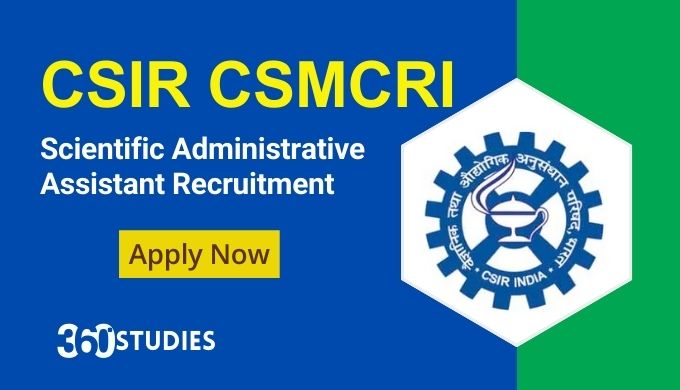Deciding to pursue a PhD is a significant step in one’s academic journey. It’s a path that requires dedication, commitment, and a deep passion for research and scholarship. While many individuals dream of earning a doctorate, it’s important to assess your readiness for this rigorous journey. Here are some signs that you might not be ready to pursue a PhD degree:
Table of Contents
- 1 Lack of Clear Research Interests
- 2 Insufficient Academic Preparation
- 3 Financial Concerns
- 4 Limited Time Management Skills
- 5 Unrealistic Expectations
- 6 Lack of Support System
- 7 Health and Well-being Concerns
- 8 Limited Passion for Research
- 9 Weak Writing Skills
- 10 Resistance to Criticism
- 11 Short-Term Focus
- 12 Fear of Commitment
- 13 Difficulty Working Independently
- 14 Weak Networking Skills
- 15 Impatience
- 16 Family Obligations
- 17 Lack of Support System
- 18 Procrastination
- 19 Fear of Failure
- 20 Lack of Research Topic
Lack of Clear Research Interests
One of the fundamental aspects of a PhD program is conducting original research. If you’re unsure about what specific area of research you’re interested in or if you haven’t yet explored your academic passions, it might not be the right time for a PhD. PhD candidates need a clear research focus to guide their studies and contribute meaningfully to their field.
What to do: Take some time to explore different topics and engage in research projects or internships to discover your true interests before committing to a PhD program.
Insufficient Academic Preparation
A PhD is an advanced academic degree that demands a strong foundation in your chosen field. If your undergraduate or master’s degree didn’t provide you with the necessary knowledge and skills, you might not be ready for a PhD. It’s essential to have a solid academic background to succeed in the rigorous coursework and research.
What to do: Consider taking additional courses, pursuing a master’s degree, or gaining relevant work experience to strengthen your academic foundation.
Financial Concerns
PhD programs can be expensive, and they often require a significant financial commitment. If you’re worried about the cost of tuition, living expenses, and potential debt, it might not be the right time to pursue a PhD. Financial stress can detract from your ability to focus on your research and studies.
What to do: Explore funding options, such as scholarships, grants, or research assistantships, to alleviate financial concerns. Consider working for a few years to save money before starting your PhD.
Limited Time Management Skills
PhD programs demand exceptional time management skills. You’ll be responsible for setting your own research agenda, meeting deadlines, and juggling coursework, research, and possibly teaching or other responsibilities. If you struggle with time management, it can lead to stress and burnout.
What to do: Develop strong time management skills by setting realistic goals, creating schedules, and seeking guidance from mentors or advisors on how to manage your time effectively.
Unrealistic Expectations
Some individuals pursue a PhD with unrealistic expectations, such as the belief that it guarantees a high-paying job or prestigious career. While a PhD can open doors, it doesn’t guarantee instant success. Research can be slow and challenging, and academic job markets can be competitive.
What to do: Be prepared for the realities of a PhD journey. Understand that it’s a long-term commitment and explore various career paths that align with your skills and interests.
Lack of Support System
PhD programs can be emotionally taxing, and having a strong support system is crucial. If you don’t have a network of friends, family, or mentors to provide emotional and academic support, it can be challenging to navigate the ups and downs of doctoral studies.
What to do: Cultivate a support system by connecting with fellow students, professors, and mentors who can offer guidance and encouragement throughout your PhD journey.
Health and Well-being Concerns
Neglecting your health and well-being during a PhD can lead to physical and mental health issues. If you’re already struggling with health concerns or if you’re not prepared to prioritize self-care, it might not be the right time for a PhD.
What to do: Ensure that you have a plan in place to maintain your physical and mental health throughout your studies. Seek professional help if needed and don’t hesitate to reach out for support.
Limited Passion for Research
Pursuing a PhD demands a deep and enduring passion for your chosen field of study. Without genuine enthusiasm, the challenges and long hours of research can become overwhelming. Ensure that the research area you’re considering genuinely excites you, as this passion will drive your motivation throughout the program.
What to do: Reflect on your passion for research and consider whether it’s a driving force in your academic journey. Engage in research projects to reignite your enthusiasm if necessary.
Weak Writing Skills
Effective communication through writing is a cornerstone of academia. Weak writing skills can hinder your ability to publish research papers, present your findings, and convey your ideas to peers and the academic community. Consider taking writing courses or seeking writing support before starting a PhD.
Resistance to Criticism
In academia, your work undergoes rigorous review and critique. If you’re sensitive to criticism and have difficulty accepting feedback, it can hinder your academic growth. Being open to constructive criticism and using it to improve is essential for success.
Short-Term Focus
If you’re primarily looking for immediate rewards or quick career advancement, a PhD may not be the best path. PhDs are about in-depth exploration and contribution to your field, and the rewards often come in the long term. Be prepared for delayed gratification.
Fear of Commitment
Completing a PhD requires a substantial commitment in terms of time and effort. If you’re hesitant about dedicating several years to research, coursework, and thesis writing, it’s crucial to consider whether you’re ready for this level of commitment.
Difficulty Working Independently
PhDs are largely self-directed. While you’ll have advisors and mentors, you’re expected to work independently on your research. If you constantly need guidance and supervision, it may indicate that you’re not yet ready for this level of autonomy.
Weak Networking Skills
Building professional relationships is essential for academic success. Networking can lead to collaborations, funding opportunities and career advancements. If you struggle with networking, consider developing these skills to broaden your academic horizons.
Impatience
Research is often a slow and methodical process. If you’re an impatient individual who expects quick results, you may become frustrated with the incremental progress typically associated with research. A willingness to embrace the gradual nature of research is vital.
Family Obligations
Significant family responsibilities can pose challenges when balancing personal life with the demands of a PhD program. Consider how you’ll manage these obligations and whether you can establish a support system to help you during your studies.
Lack of Support System
Doctoral studies can be isolating, and having a strong support network is crucial. Friends, family, peers, and mentors can provide emotional support, guidance, and motivation during challenging times. Ensure you have a support system in place.
Procrastination
Chronic procrastination can be a significant obstacle during a PhD program. Meeting research and writing deadlines is essential, and procrastination can lead to stress and subpar work. Developing strategies to overcome procrastination is crucial.
Fear of Failure
Research often involves setbacks and failures. If you’re terrified of failing or perfectionistic to the point of paralysis, it can hinder your progress. Embrace failures as learning opportunities and cultivate resilience.
Lack of Research Topic
Before starting a PhD, you should have a well-defined research topic that genuinely interests you. If you haven’t identified a specific area of study or research question, it’s advisable to spend more time exploring your interests and narrowing down your focus before committing to a PhD program.
In conclusion, pursuing a PhD is a significant decision that should not be taken lightly. It requires careful consideration of your readiness and commitment. If you recognize any of these signs in yourself, it’s essential to address them before embarking on a PhD journey. Taking the time to prepare and ensuring you are mentally, academically, and emotionally ready will increase your chances of success in your pursuit of a PhD degree.
However, it’s important to know that these signs shouldn’t stop you completely. You can overcome these challenges with help, resources, and personal growth. If you see these signs in yourself, it’s a good idea to work on them before starting a PhD program. Find a mentor, get more research experience, and build the skills you need for success in academics. Being fully prepared for a PhD will make your academic journey more enjoyable and productive.






